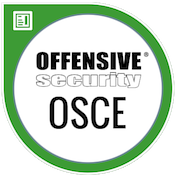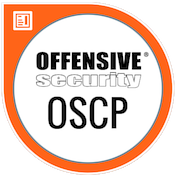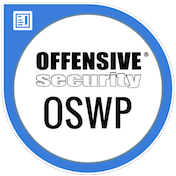About Us


At blackBug, we are a team of passionate cybersecurity personnels committed at building and maintaining high quality IT Security resilience for organizations across the globe. Specialising only in Information Security, we assist organizations from all industries and at all levels of governance to ensure that their information assets are well protected.
BlackBug was founded on the belief that independent security consulting, when well communicated and delivered professionally, plays a vital role in managing an organisation’s risk profile and security posture. We provide critical information that helps organisations make data-driven decisions that can optimise internal resources and help them navigate the current cybersecurity landscape with a true roadmap to remediation.
Our technical expert consultants possess a multitude of highly regarded certifications in the information security field, including:




In addition to extensive experience and holding leading certifications, all of our consultants have undergone exhaustive federal and national background checks, so our clients can feel confident in the knowledge that they are dealing with the industry’s most trustworthy professionals.

The OSSTMM (Open Source Security Testing Methodology Manual) is a recognized framework that details industry standards. The framework provides a scientific methodology for network penetration testing and vulnerability assessment. It is a comprehensive guide to the network development team and penetration testers to identify security vulnerabilities present in the network.
The OSSTMM methodology enables penetration testers to perform customized testing that fits the technological and specific needs of the organization. A customized assessment gives an overview of the network’s security, along with reliable solutions to make appropriate decisions to secure an organization’s network.
The OWASP (Open Web Application Security Project) is another recognized standard that powers organizations to control application vulnerabilities. This framework helps identify vulnerabilities in web and mobile applications. At the same time, the OWASP also complicates logical flaws arising in unsafe development practices.
The updated guide of OWASP provides over 66 controls to identify and assess vulnerabilities with numerous functionalities found in the latest applications today. However, it equips organizations with the resources to secure their applications and potential business losses. By leveraging the OWASP standard in security assessment, the penetration tester ensures almost nil vulnerabilities. Besides, it also enhances realistic recommendations to specific features and technologies in the applications.
The NIST (National Institute of Standards and Technology) varies information security manuals that differ from other information security manuals. In a way, NIST offers more specific guidelines intrinsic to penetration testing to improve the overall cybersecurity of an organization.
Most American-based organizations and partners must comply with the regulatory compliance of the NIST framework. Moreover, the framework guarantees information security in industries like banking, communications, and energy. There is a probability of customizing the standards to meet their specific needs. Significantly, NIST contributes to security innovation in the American industries.
In order to comply with the NIST standards, organizations must conduct penetration testing on their applications and networks. However, organizations should follow pre-established guidelines. These guidelines ensure that the organizations fulfill their cybersecurity obligations and mitigate risks of possible cyberattacks.
The PTES (Penetration Testing Methodologies and Standards) recommends a structured approach to a penetration test. On one side, the PTES guides you through the phases of penetration testing, beginning with communication, information gathering, and threat modeling phases. On the other hand, penetration testers acquaint themselves with the organization’s processes, which helps them identify the most vulnerable areas that are prone to attacks.
PTES provides guidelines to the testers for post-exploitation testing. If required, they can validate the successful fixing of previously identified vulnerabilities. The standard has seven phases that guarantee successful penetration testing with recommendations to rely on.
The ISSAF (Information System Security Assessment Framework) is a specialized and structured approach to penetration testing. More importantly, the framework provides advanced methodologies that are personalized to the context. These standards allow a tester to plan and execute every step of the penetration testing process. Thus, it caters to all the requirements of the penetration testing process. As a penetration tester, if you are using different tools, then ISSAF is a crucial framework. For instance, it ties each step to a specific tool and thus reduces complexity.
ISSAF offers additional information concerning various attack vectors, as well as vulnerability outcome after exploitation. All this information allows testers to plan an advanced attack that guarantees a return on investment while securing systems from cyberattacks.